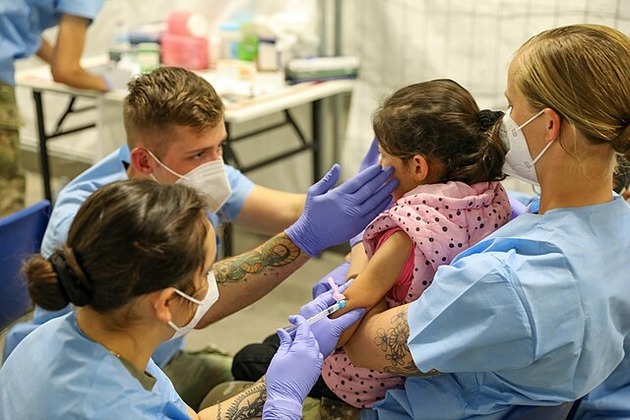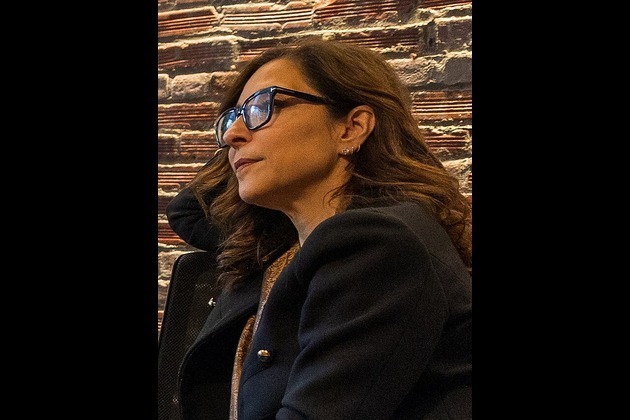3 Education Opportunities That Only Became Possible Due to Coronavirus
7Newswire
13 Oct 2021, 17:12 GMT+10

The pandemic has brought financial hardship to millions worldwide. It's also had some unfortunate consequences for our kids. The loss of school programs, the lack of new classes, and the closure of school facilities could all do a number on our kids' learning. Yet, we'll explore some new opportunities that have appeared due to coronavirus.
The pandemic has changed the education landscape. Students are deciding to postpone or abandon their classes and tuitions. Universities and colleges had to forgo in-person classes and cancel or postpone all in-person events.
Every teaching establishment focuses on providing online courses and programs for its students. Online tutoring has a lot of advantages. It's more flexible, enabling students to study at a convenient time and location. Institutions benefit as well because online programs don't require hiring or extra facilities.
Online courses and programs enable students to find a quality paper writer at WritePaper, a site that provides professional academic services at affordable prices!
Here are three main education opportunities the COVID-19 pandemic has shed some light on.
The Necessity to Safeguard Education
The coronavirus pandemic has amplified the urgency around reimagining education. Schools close, teachers may lose their jobs, and students might graduate without learning the skills they need. Thus, the focus has turned to the future of education.
The coronavirus pandemic has affirmed the importance of education and its critical role in society. It showed us that education is a pillar that can strengthen communities, economies, and countries. It proved to us it's an economic engine, a tool for social mobility, and a means to link to new opportunities.
The pandemic has also highlighted that education is threatened by
- deepening inequality;
- school closures;
It highlighted the critical need for teacher quality and the necessity to protect their working conditions. Teaching is an important component of society, so it's important to rethink how we provide it.
The coronavirus pandemic spotlighted that we need to safeguard education systems for the future. Amid the crisis, educators were working tirelessly to find ways to ensure that children could continue their education remotely.
The pandemic has revealed the fragility and vulnerability of our modern education system. Despite the coronavirus threat, we must develop new ideas to improve education systems worldwide.
Governments, educators, and parents can work together to improve tutoring in ways that benefit all students. The role of technology, both at home and in the classroom, cannot be overstated. As schools reopen, new tools and approaches will help ensure that every child has the chance to succeed in school and beyond.

Source: https://unsplash.com/photos/cPWUODAvXjk
New and Accessible Technology
Now that we've mentioned it, let's dive deeper into the newly developed tech. Online teaching has become more accessible and less expensive in recent years. You can enroll in a college course or certification program and, in some cases, earn your degree without ever setting foot in a classroom for years. Online courses were lambasted by critics, but they've become much more accepted as a viable option.
Online learning is also more affordable than ever, and students don't have to wait for a degree or certification program to start. Dozens of MOOCs, or massive open online courses, are offered online. Many of them are free for students in developing nations.
Many COVID-19-related developments have the potential to change the education system for the better. These innovations include distance learning, online learning, and virtual classrooms.
- Distance Learning
Distance learning is a way for people to complete college or university degrees from home. It's easy to do, and many students find it appealing because they don't have to attend class in person.
- Online Education
Online education is a similar concept, except that students take courses online. It's often self-paced, and individuals can take courses from wherever they are.
- Virtual Classrooms
Virtual classrooms are another type of digital education. They enable teachers to deliver lectures online, and students can view them on a computer or mobile device.
Learning Opportunities for Teachers
When the coronavirus hit and schools closed, teachers were left with even more time on their hands. The coronavirus has forced educators to prioritize learning, and 2020 has been a fascinating year.
Students have had a challenging year, from school closings to COVID-19 and stay-at-home orders to the cancellation of proms. But teachers have found a way to bring knowledge to students, even when it's inconvenient to do so.
Now, students and teachers embrace digital tools and classroom strategies that will boost learning.
Here are three ways that educators are deliberately using to boost learning with the help of technology.
Teachers became quick learners. Their technological knowledge advanced rapidly in just a few months to provide high-quality education to today's students.
Final Thoughts
The COVID-19 pandemic was and still is more than challenging to deal with. We lost a lot of opportunities to hang out with friends, and our work has been disrupted. But we've also seen some amazing examples of people coming together to support each other and to learn new things.
The coronavirus crisis has changed how we learn and teach, affecting education long-term. At a time of extreme uncertainty, educators have had to reimagine what many classrooms will look like in the months to come.
 Share
Share
 Tweet
Tweet
 Share
Share
 Flip
Flip
 Email
Email
Watch latest videos
Subscribe and Follow
Get a daily dose of California Telegraph news through our daily email, its complimentary and keeps you fully up to date with world and business news as well.
News RELEASES
Publish news of your business, community or sports group, personnel appointments, major event and more by submitting a news release to California Telegraph.
More InformationInternational
SectionCDC: US records 1,288 measles cases, most since 1992 outbreak
ATLANTA, Georgia: The United States is facing its worst measles outbreak in more than three decades, with 1,288 confirmed cases so...
Gaza War sucking life out of an Israeli generation
In the past month alone, 23 Israeli soldiers have been killed in Gaza—three more than the number of remaining living hostages held...
Faulty IT system at heart of UK Post Office scandal, says report
LONDON, U.K.: At least 13 people are believed to have taken their own lives as a result of the U.K.'s Post Office scandal, in which...
Travelers can now keep shoes on at TSA checkpoints
WASHINGTON, D.C.: Travelers at U.S. airports will no longer need to remove their shoes during security screenings, Department of Homeland...
Rubio impersonator used AI to reach officials via Signal: cable
WASHINGTON, D.C.: An elaborate impersonation scheme involving artificial intelligence targeted senior U.S. and foreign officials in...
Warsaw responds to migration pressure with new border controls
SLUBICE, Poland: Poland reinstated border controls with Germany and Lithuania on July 7, following Germany's earlier reintroduction...
Business
SectionAI saves $500 million for Microsoft as layoffs reshape strategy
REDMOND, Washington: Artificial intelligence is transforming Microsoft's bottom line. The company saved over US$500 million last year...
FTC’s rule to ease subscription cancellations struck down by court
WASHINGTON, D.C.: A federal rule designed to make it easier for Americans to cancel subscriptions has been blocked by a U.S. appeals...
Musk’s X loses CEO Linda Yaccarino amid AI backlash, ad woes
BASTROP, Texas: In a surprising turn at Elon Musk's X platform, CEO Linda Yaccarino announced she is stepping down, just months after...
Ex-UK PM Sunak takes advisory role at Goldman Sachs
NEW YORK CITY, New York: Former British prime minister Rishi Sunak will return to Goldman Sachs in an advisory role, the Wall Street...
Gold ETF inflows hit 5-year high as tariffs drive safe-haven bets
LONDON, U.K.: Physically backed gold exchange-traded funds recorded their most significant semi-annual inflow since the first half...
PwC: Copper shortages may disrupt 32 percent of chip output by 2035
AMSTERDAM, Netherlands: Some 32 percent of global semiconductor production could face climate change-related copper supply disruptions...













